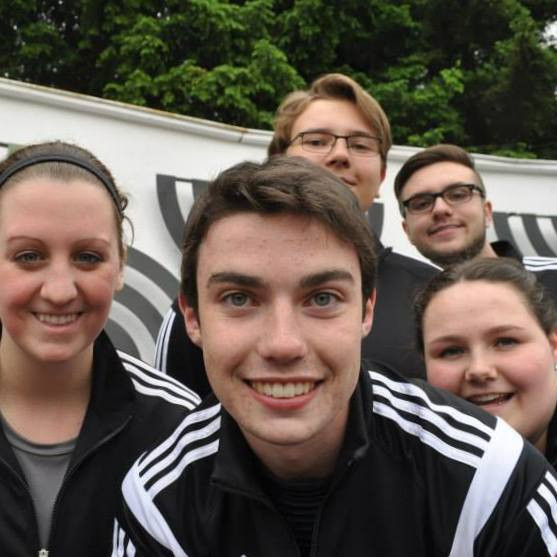50p

Taking Aim for Canada
Last Saturday, I got the chance to ask Duncan H, Ellis ‘14 a few questions about his international adventures in trap-shooting. My first questions, I regret to admit, revealed with stunning obviousness my beginner status as an interviewer. I had failed entirely to take advantage of the vast and terrifying power to stalk—err, conduct serious journalistic research—possessed by Google and Facebook, and thus my first target, so to speak, was to determine, with some accuracy, just what trap-shooting actually is.
Lucky for this rookie, Duncan was more than happy to oblige with the patience and wherewithal of one well used to explaining his passion to curious—and clueless—strangers. There are, I soon learned, no fewer than ten distinct shooting events in the Olympics. Trap-shooting consists of using a shotgun to strike down small clay tablets (known as birds) as they are fired out of a contraption known as a bunker. The angle and velocity of the birds varies with each shot fired. In Olympic trap-shooting, the minimum speed at which a bird is fired is 110 km/h!
The tournaments are as cut-throat as the event itself. After each day, half of the participants are eliminated—no matter how strong their individual scores. On the final day of a multi-day tournament, only eight competitors remain, and the qualifier for the gold medal round is, quite literally, a one-shot deal.
Having established this basic understanding, I moved onto the personal stuff: how Duncan had come to be involved with such an unusual pursuit. Befitting of such an action-packed sport, his answer began with an FBI agent. Unfortunately, no Bondian shoot-outs were involved. The agent, who happened to be a client of Duncan’s father, offered to introduce his son to marksmanship. Duncan showed an innate talent for shooting, and the agent suggested to his father that he attend a marksmanship camp to improve his skills. Two years later, having located such a camp in New Mexico, Duncan spent a summer learning about the vast range of guns, techniques and events used throughout the world, from the earliest Napoleonic rifles to the most modern, automatic weapons.
From the moment when he first tried trap-shooting, Duncan says, he knew that he had found his calling. When the camp ended, Duncan and his family contacted the Arizona state trap-shooting team and inquired about the protocol for trying out. The coach explained that, with the season nearly over, there was little point in trying to join. Less than a week later, however, the tables had turned: the coach saw Duncan shooting, and immediately asked him to join the team. One week later, he was made captain. He was 14 years old.
The next year, at fifteen, he was recruited for the Arizona State University team. The seasons that followed yielded no fewer than eleven international titles and 50 state titles, and all that on top of a record number of internal titles. After an off-season spent trying to find a new coach, however, things began to go downhill at a rate that no one—Duncan included—could have predicted. There were no wins to be had the next season, and after a disappointing show at American Nationals came the final blow: at Canadian Nationals, he shot his worst score ever. When the season ended, Duncan decided to take a break.
When he started at Brentwood the following September, he had begun to train again, albeit at a much slower pace, and if soon paid off. In December of 2014, he was named to the Canadian National Team. He began to regain his former glory with an impressive showing at the US Spring Selection match over Spring Break, and received offers from both the Canadian and American teams set to compete in Germany. And so it came to be that Duncan took a trip to Germany, his first international destination for trap-shooting.
Unfortunately, although his average was good enough to have won the competition, a combination of nerves and the sheer alien quality of competing in another country prevented him from competing to the best of his abilities. Luckily, the country itself did not disappoint. Duncan describes Germany as “Phenomenal…. [everything] from the food to the people.” He also says that he “learned more in Germany than he had in all other competitions combined.”
What’s next? According to Duncan, he is looking forward to competitions in South Korea and Australia, as well as the prestigious Commonwealth Games in Scotland. The final rosters have not yet been released, he explains, but he is hopeful—and with good reason. His drive to succeed is untainted by the adversity he faced on his way to the top. Of his approach to new challenges, Duncan explains, “It’s a matter of putting it all together when the time is right. There are always new problems, new shots to take, and you have to find a way to conquer them. It’s a lot harder to conquer yourself than it is to conquer others… making peace with yourself is the first step”. Powerful words, indeed.
Sara T, Mackenzie ‘15